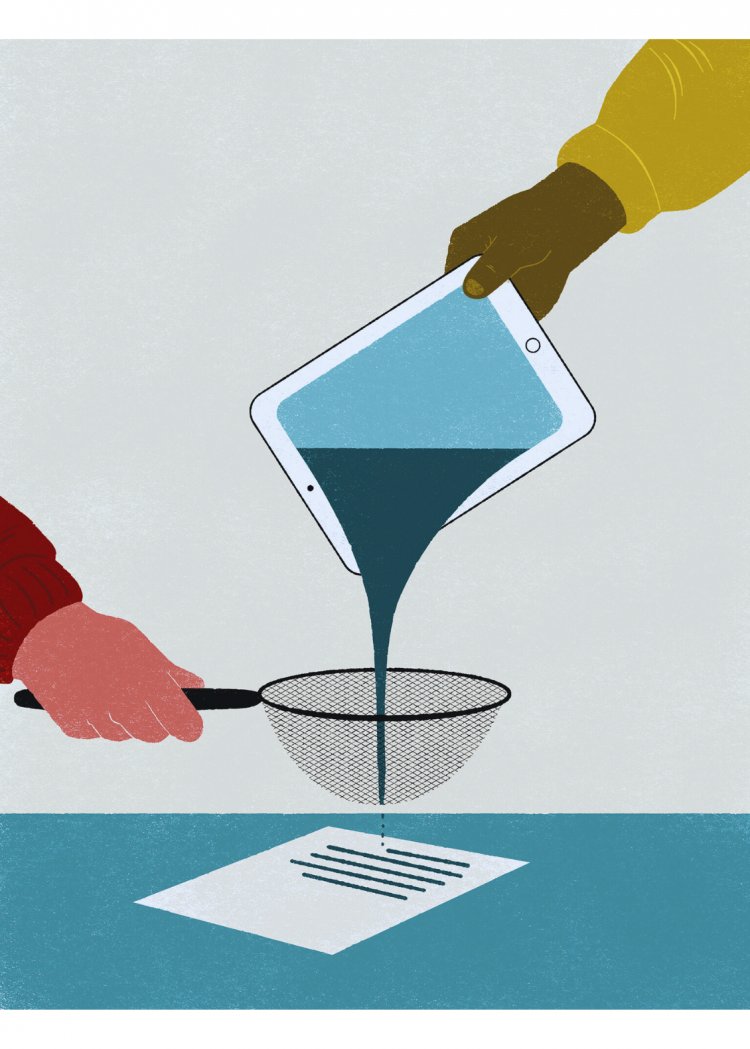The Importance of Information Literacy
We will explore the significance of information literacy in today's world and how it can enhance our ability to navigate the abundance of information available to us.

Introduction:
In the digital age, information is willingly available at our fingertips. With a single click, we can access a vast ocean of knowledge, ranging from scholarly articles to social media posts. However, in this sea of information, it is crucial to possess the skills of information literacy. It empowers individuals to effectively find, evaluate, and use information to make informed decisions. In this article, we will explore the significance of it in today's world and how it can enhance our ability to navigate the abundance of information available to us.
The Importance of Information Literacy:
In a world where misinformation and disinformation abound, it plays a pivotal role in distinguishing between reliable and unreliable sources. By honing information literacy skills, individuals become critical thinkers who can evaluate the credibility, accuracy, and relevance of the information they encounter. This ability not only protects them from falling victim to false narratives but also enables them to make informed decisions that shape their personal and professional lives.
Moreover, it is essential for lifelong learning. The exponential growth of knowledge requires individuals to constantly update their understanding and skills. By knowing how to access reliable sources, evaluate information, and synthesize it effectively, individuals can stay current with the latest developments in their fields of interest. It, therefore, fosters intellectual growth and equips individuals to adapt to a rapidly changing world.
The digital age has brought about unprecedented opportunities for collaboration and communication. However, it has also given rise to an overload of information. It helps individuals filter through this overload, allowing them to efficiently locate and retrieve relevant information. Whether it is conducting research for academic purposes or finding reliable resources for personal projects, it ensures that individuals can make the most of the vast information landscape available to them.
Developing Information Literacy Skills:
To become information literate, individuals must cultivate a set of essential skills. The first skill is the ability to identify information needs. This involves recognizing gaps in knowledge and understanding what type of information is required to address those gaps. Once the needs are identified, individuals should be able to effectively search for information using a range of sources, including libraries, databases, and the internet. It is important to know how to use search engines efficiently and utilize advanced search techniques to obtain accurate and relevant results.
Next, individuals must critically evaluate the information they find. This involves assessing the credibility and authority of the sources, examining biases, and checking for supporting evidence. It empowers individuals to look beyond surface-level information and delve deeper into the reliability and objectivity of the sources they encounter.
Furthermore, it encompasses the ability to organize and manage information effectively. This involves understanding how to organize data, create citations, and use reference management tools. By mastering these skills, individuals can avoid plagiarism, properly attribute sources, and create well-structured and coherent presentations or written works.
Another crucial aspect of information literacy is the ability to ethically use and share information. This involves understanding copyright laws, intellectual property rights, and the responsible use of others' work. By respecting these principles, individuals contribute to a culture of intellectual integrity and protect their work from being misused.
Conclusion:
In a world overwhelmed with information, it has become an indispensable skill set. It empowers individuals to separate fact from fiction, navigate the vast digital landscape, and make informed decisions. By developing it skills, individuals can enhance their critical thinking, stay updated in their fields, and effectively contribute to the global knowledge ecosystem.
Incorporating information literacy into educational curricula and promoting it as a lifelong learning endeavor is crucial. It is not only a responsibility of educational institutions but also a necessity for individuals across all walks of life.













